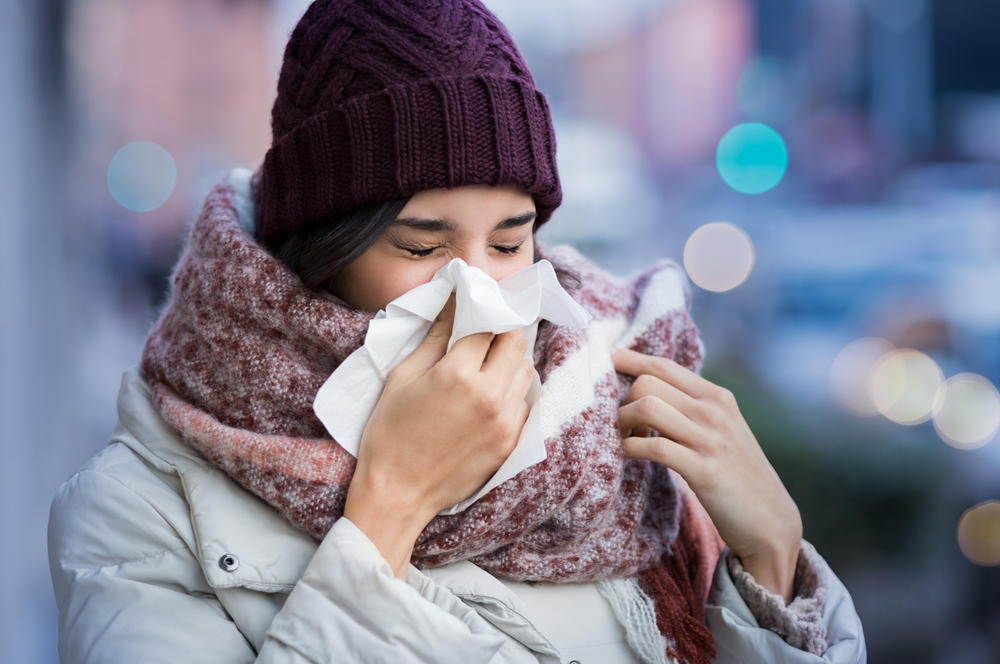You’ve been looking forward to winter all year. The sneezing and coughing and runny nose caused by your hay fever were simply unbearable over the summer, and you’re hoping the colder (less pollen-filled) air will provide some relief. Unfortunately, winter allergies are quite common.
This doesn’t imply a direct transition from summer allergies to winter allergies, but certain winter allergens can trigger immune responses and cause reactions. Combined with seasonal illnesses, there are valid reasons to give due consideration to your winter allergies.
What are winter allergies?
Consider an allergic reaction as a misjudgment by your immune system. In spring and summer, your body perceives pollen as a threat, prompting an immune response that leads to sneezing. During winter, similar processes unfold, but the allergens triggering your reaction vary.
The most prevalent winter allergies include:
- Mold: Your body isn’t a huge fan of mold spores. And those spores get the run of the area come cold weather. That’s because the winter frost doesn’t necessarily kill mold spores. Additionally, mold spores tend to be smaller than pollen, so they can really get deep into your respiratory system when they cause a reaction (this could lead to more coughing than sneezing).
- Pet Dander: In the winter, you’re inside all day. And so are your pets. With no open windows and lots of recirculated air, you’ll be breathing in a lot more pet dander than usual. The sheer concentration of this dander could cause your allergies to flare up.
- Dust: By the same token, the dust in your home could become a more significant allergen. Again, because all of your windows likely will remain shut for months on end, all that dust has nowhere to go. It’s not so much the quality of the dust that causes your sneezing and watery eyes–it’s the quantity.
In many ways, these allergens are somewhat inevitable. You won’t confine your dog indoors throughout winter just because your allergies are flaring up. However, this doesn’t imply that you lack various options to prevent allergy exacerbations.
How to find winter allergy relief
If you’re grappling with winter allergies, you’ll want to minimize those symptoms as much as possible. In the summer, this might seem relatively straightforward: stay indoors. However, during the winter, staying inside is precisely the kind of behavior exacerbating your allergies.
Here are a few measures you can take:
- Make sure your pets have their own bed: Ideally, you’d want to keep your pets out of your room at night. But the very least you should do is ensure your pets have their own bed to sleep in. You just need to give your allergies some space to recover.
- Use a HEPA air filter: Ensure the air filtration system in your HVAC venting is in working order. It’s not a bad idea to replace those filters before winter transitions into high gear. You can also invest in other stand-alone air filtration devices.
- Get your flu shot: If your allergies are flaring up and you contract the flu or pneumonia on top of that, you could be looking at some pretty significant pulmonary issues. The flu shot does not protect you against 100% of the influenza strains out there, but some protection is better than no protection. And if you have winter allergies, this added protection will be essential.
Personalize Your Allergy Response
Everyone’s allergies are different. You might notice more allergens in your area during December and January. For other people, the brutal dry air of February might be the real source of the problem.
Just because you have winter allergies doesn’t mean you have to suffer through the cold months sniffling and sneezing. Whatever your allergy situation is, there are steps you can take to relieve your symptoms.
If you want more specific relief from allergy symptoms, find an ENT specialist near you to discuss treatment options.
